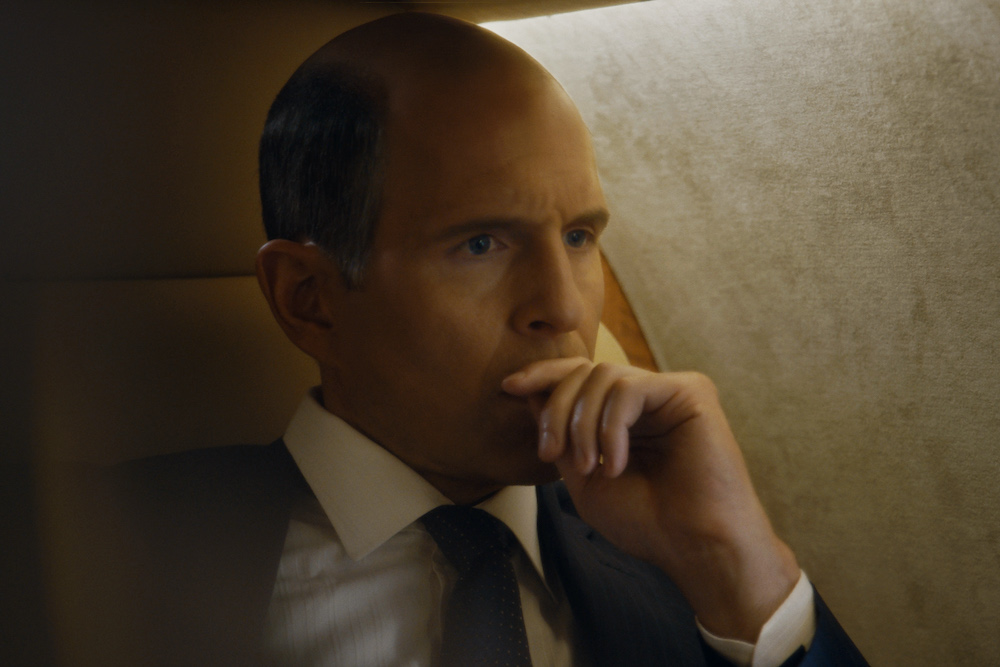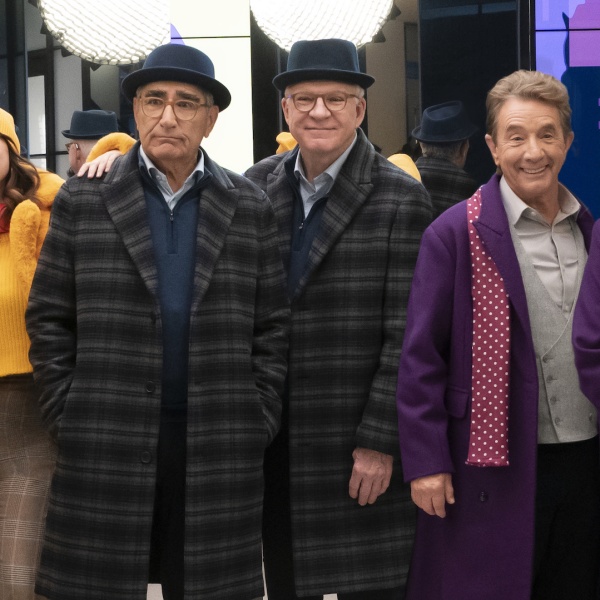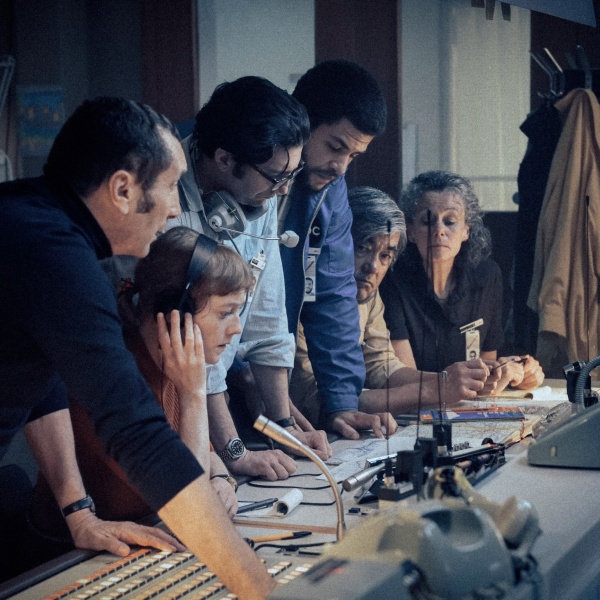Glenn Howerton has never won an Emmy. He’s never been nominated for an Emmy. To anyone who invested in the awards race — or anyone who’s seen more than a few episodes of “It’s Always Sunny in Philadelphia” — these facts are both obvious and outrageous. Rob McElhenney’s landmark FX sitcom has been infamously snubbed by the Television Academy throughout its record-breaking run. In 16 seasons, the series has been recognized three times, and each time, it was in the same category: Stunt Coordination.
No disrespect to Marc Scizak’s worthy accomplishments (and credit to the Emmys for honoring stunt work in the first place), but “It’s Always Sunny” deserves so much more. Where’s the Best Comedy Series nod for TV’s longest-running live-action sitcom? Where are the writing nominations for scripts like these? And where’s Glenn Howerton’s G.D. trophy?!
Well, this might be his year. No, not at the Emmys, which once again bypassed “Philadelphia.” Instead, Howerton is in pursuit of an Oscar, courtesy of Matt Johnson’s acclaimed feature film, “BlackBerry.” As Jim Balsillie, the company’s scheming, volatile co-CEO, Howerton’s turn has been hailed as “simply dazzling,” “a revelation,” and “the kind of performance that can make a career.” The Gothams kicked off Oscar season by nominating Howerton alongside supporting frontrunners like Ryan Gosling and Penelope Cruz. The stage was set. Momentum was building.
Then, a speedbump. “BlackBerry‘s” distributor, IFC Films, and its parent company AMC Networks made the curious decision to release the two-hour film as a three-part TV show. This week, “BlackBerry: The Limited Series” aired over three nights, one episode per night, on AMC and is now available to stream via AMC+. Rather than simply premiering the film as-is and touting its availability on streaming (rather than rental services), AMC has added 16 minutes of footage and recut the two-hour feature into three 45-minute episodes.
“Why?” is a question with answers both obvious and, I would argue, outrageous. While exposure is the name of the game for awards campaigns and nascent streaming services, Howerton’s Oscar campaign deserves better. If stuffy Academy voters are going to support him throughout the long, taxing FYC season (as they should), his work in “BlackBerry” needs to be distinguished, elevated, and exulted. It needs to be seen as something separate from his past endeavors, not more of the same. Turning a zippy film into a truncated TV show does the opposite, hurting Howerton’s Oscar odds and doing the film a disservice to boot. It’s relatively easy to connect the dots between Dennis Reynolds and Jim Balsillie. What’s harder is separating them, and they deserve to be seen separately.
To be fair, “BlackBerry” runs somewhat smoothly when split up into three parts. Using the film’s three-act structure as a guide, the first entry sees Howerton’s Jim meeting, dismissing, and then latching himself onto Mike Lazaridis (Jay Baruchel), who has a plan to bring email to people’s pockets. The co-CEOs are, on paper, something of a perfect fit: Mike is a brilliant engineer with poor business skills; he can’t rally his team when needed, nor does he know when investors are taking him for a ride. Jim, meanwhile, only knows business. He’s an empty suit — no ideas of his own, little understanding of his product — but he makes deals happen, for better or worse.
In reality, of course, it’s clear Jim is bad news. He screams and curses, rants and raves, rules with an iron fist and brings that fist smashing down onto anything and everything, even the things he’s ostensibly selling. “Get these fucking nerds to drop everything and build this fucking phone!,” he shouts, before adding a rhetorical “WHAT!” for emphasis. As the rushed partnership gets on its wobbly feet, the first episode ends in a pitch meeting that Jim sets up but Mike closes. By the time the idea-man has explained his technological breakthrough to AT&T, all the buyers want to know is what they’ll call their phone.

Episode 2 ends in the same fashion. Mike and Jim are again pitching to AT&T, and it (again) ends with them asking a question. “How’d you do it, Mike?” These similar closing scenes, along with the flashbacks that start Episodes 2 and 3 (one providing added backstory to Jim, the other for Mike), give “BlackBerry: The Limited Series” sound episodic structure. They create clear starting and stopping points for the audience, and the time jumps in between episodes help, too.
But how it plays is almost beside the point. The movie, like the vast majority of stories, is stronger for being tightly edited. “BlackBerry” isn’t an epic tale, but an intimate one. Johnson (who co-stars as Mike’s best friend Doug Fregin) shoots from the hip, so to speak, employing a loose, jittery handheld style that wouldn’t feel out of place in “Modern Family” or “The Office.” This isn’t a period story that overwhelms you with nostalgic details so much as one that savors whatever minor notes it can catch as the camera flies by. Scenes take on a kinetic energy that push events forward with almost as much urgency as Howerton’s unrelenting boss.
Similarly, Howerton’s performance is better when it’s bottled up. His closing speech, filled with vengeful bile and an all-time Canadian kicker (“I’m from Waterloo, where the vampires hang out!”), is exquisite; an apt culmination that demands Howerton go bigger than any of his previous towering temper tantrums, and his incensed escalation does exactly that. You can already see it being played in banquet halls and auditoriums, while a presenter reads the nominees and their choice clips play to the gathered viewers.
But it’s not what makes Howerton unforgettable. His best moments are created through silence. It’s the intensity with which Jim watches hockey, barely breaking eye contact with the TV when Mike calls, asking him to join the company. It’s when he stops running through the airport, desperate to meet with a man about to leave for vacation, and Jim stops to listen, finally listen, to what he has to say. (“You know what the problem with selling minutes is? There’s only one minute in a minute.”) And it’s when Jim walks into a surprise ambush in Mike’s office, reacting to the news that he’s a dead man walking not with more threats or screams, but with revealing resignation. Seeing a man so prone to extreme outbursts crumple from within is powerful because it’s jarring; because it comes in contrast to the tyrannical tornado we’ve seen tear through the movie.
Diluting that contrast by adding 16 minutes and breaking up the experience over three nights (or even three parts) doesn’t help “BlackBerry” and it doesn’t help Howerton. Worse still is the impression it gives awards voters. Yes, we live in an age where a TV show can be voted the best film of the decade, but that age is relatively short in the long history of both mediums. There’s still a bias that elevates film over TV, especially in awards voting and especially among snobby older voters. Framing a contending film as a “television event” isn’t going to help it stand out against “cinematic achievements,” especially when its most acclaimed performance comes from a sitcom star. Maybe Howerton’s work is Emmy-worthy, but that does little to suggest it’s deserving of the almighty Oscar.
After all that, let me be the first to admit “BlackBerry: The Limited Series” likely doesn’t matter much in the grand scheme of Oscar season. It is, at worst, a speedbump. If the experts are to be trusted, Howerton’s odds are slim. He’s facing steep competition from higher-grossing films filled with Oscar-friendly stars. Still, he could register with critics’ circles, the Critics Choice Awards, or even SAG, and simply being in the race is a win unto itself — all those parties filled with A-list filmmakers, all those panels bringing glamorous exposure.
And that’s what matters: exposure to new people, new opportunities, and new work. Too many talented sitcom stars have ended up boxed in by their breakthrough characters. Howerton, even within that character, has shown how versatile he can be. “BlackBerry” is an opportunity to kick those doors open; to let the Juilliard Drama graduate loose on roles far-removed from Dennis Reynolds. Here’s hoping he’s already lined up his next great challenge, his next opportunity to surprise and delight audiences, his next chance at a trophy. He deserves one, and everyone should be doing whatever they can to ensure he’s properly considered — especially the networks and studios backing his work.
“BlackBerry” is available to rent or buy everywhere. The three-part limited series is available on AMC+.





